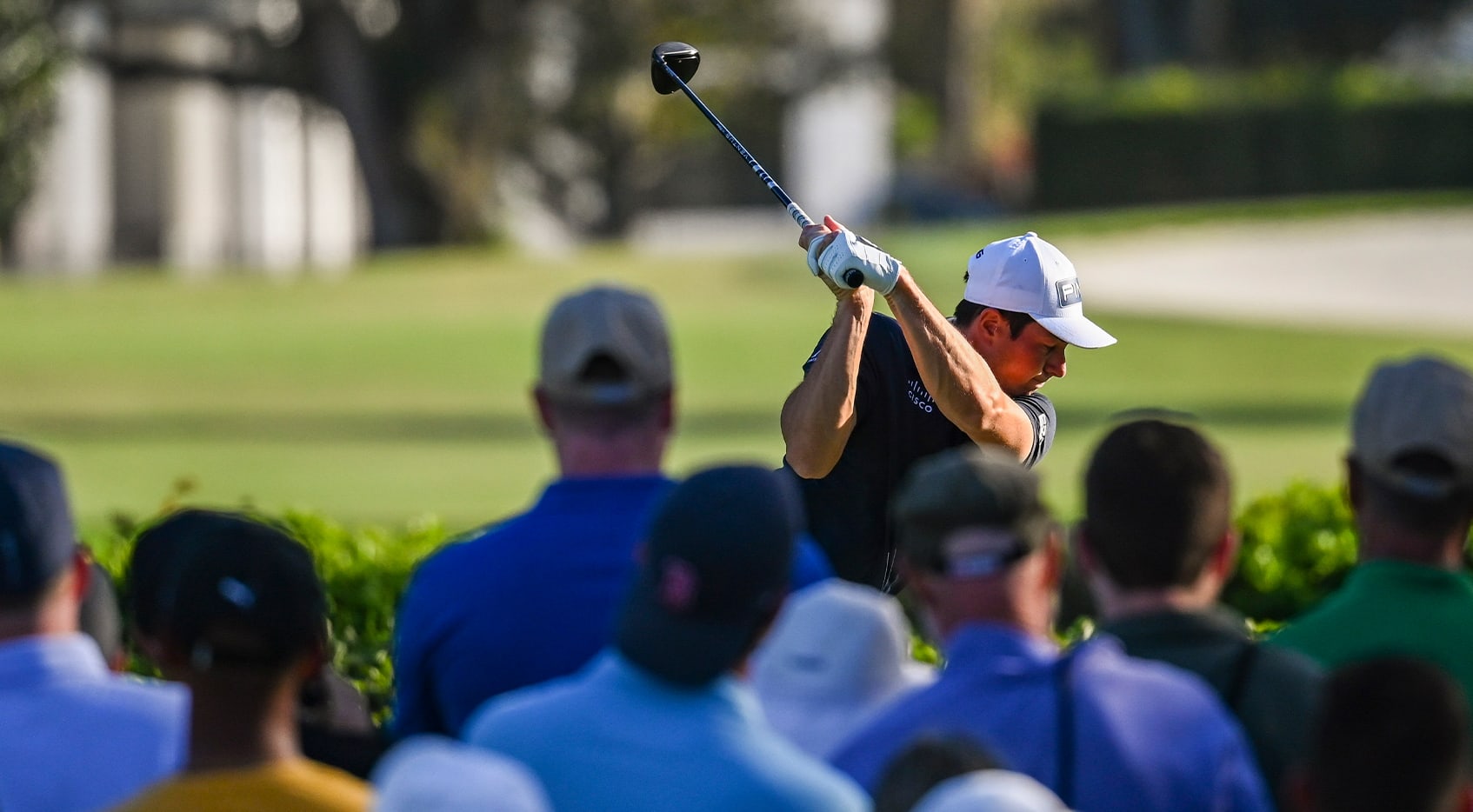How does dead heat work in golf betting

2. If PointsBet does not offer the "Draw" or "Dead Heat" Selection for a specific event where there has. Dead-heat rules will apply to the Place part of Each-way bets. Official tour site results at the time of trophy presentation are used for settlement purposes. Golf sees its share of dead heats, where players tie at the end of the tournament in the top 5, 10, or 20, but not first place. Rarely do you. Within this article we briefly explain how dead heat rules work within sports. Though they are rare how does dead heat work in golf betting, dead heats are when two or more competitors.
How Do ‘Dead Heat’ Ties Work in Golf Betting?
The result of most bets is a win or a loss, but there are times when a game, a tournament or an event ends in a tie. We bet at online sportsbooks or bookmakers for certitude, either on a straight play or through some variation of handicapping to declare a winner or a loser to cash winning betting slips to build our bankrolls.
We will examine the rules governing dead heat events to give every sports bettor a clear understanding of the rules that govern dead heat events. In simplest terms, a dead heat is a tie in some races. Horses, cars, running races, greyhound racing, and the like can end in ties that constitute a dead heat designation. Golf sees its share of dead heats, where players tie at the end of the tournament in the top 5, 10, or 20, but not first place.
For MLB matchups, they play extra innings until a team wins. Dead heat originated at a horseracing track back in the s. Using the term heat is a reference to a qualifying race — think M races at track meets — but the term dead heat continues to tell the betting public no clear winner has been declared.
Dead heat rules govern the payout for sports bettors in the event of a tie. The easiest way to understand dead heat rules is like this: you win part of your bet and lose part of your bet. It is as rare as the veritable tie in sports betting. The stake is divided by the number of tied participants and multiplied by the odds. A two-way tie is split evenly, and an extremely rare three-way tie is divided by If the sportsbook or bookie you gamble with offers ties on their betting menu, they will payout ties in full.
Different rules govern different sportsbooks; instead of cutting the payout, the sportsbook may cut the odds, reducing the payout. The frequency of the occurrence happens for two reasons: sport type and the precision of the technology available. Photo finishes at the racetrack or track meet to reduce the chances of a dead heat.
Horse racing has the highest occurrence of dead heats or two-way ties in the first place. You never see a tie for the top spot in any golf betting event, they go to extra holes to crown the tournament champion, but you can have ties after the top spot. In golf, the dead heat depends on the total number of players tied and the places on offer. How does dead heat work in golf betting What is the payout if your golf bet ends in a dead heat?
Your stake is cut down based on the number of golfers tied. Some sportsbooks cut the odds, and it is possible to lose money on a dead-heat finish. Rory McIlroy can finish tied for sixth, and the total return will be cut down because of the number of participants that have tied. The only time the finishing position must be settled with a winner is when two golfers tie for the tournament championship.
The golfer you are backing ends up tied with another golfer. The same as golf, the number of ties is divided by the stake in horse racing betting. See the example below. But they can use the results in other ways, like the vig or vigorish, if you prefer. The sportsbook collects the fee for handling your bet, and they get paid on win, lose, or dead heat.
Line movement is another area where sportsbooks can gain an edge when the algorithm is triggered based on public money coming in, an injury, or, in the case of horse racing, a scratch. Frank and Geoff wrote this online sportsbook guide with one goal in mind: to pass on their first-hand sports betting knowledge to the masses.
The guide covers everything from signing-up at a sportsbook to cashing out when you win big, plus every single step in between. Terms and conditions affecting the bonus offers available to you vary by location.  Please consult the sportsbook website directly to view the most up-to-date terms and conditions regarding the bonus offers outlined on this page.
Please consult the sportsbook website directly to view the most up-to-date terms and conditions regarding the bonus offers outlined on this page.
Please consult the sportsbook website directly to view the most up-to-date terms and conditions regarding the bonus offers highlighted on this page. Terms and conditions impacting the bonus offers available to you vary by location. Find answers to common questions bettors like you have when researching which sportsbook to join.
Dead heat bet refers to a situation in which two or more participants finish a sporting event or a race exactly at the same time, making it impossible to determine the winner. In such a case, the bookmaker declares a tie or a dead heat. In a dead heat bet, the stake is divided by the number of winners, and the payout depends on the odds of the winner at the time of placing the bet.
Dead heat bets are common in horse racing, athletics, and other events with multiple participants. It is essential to understand dead heat rules before placing a bet to avoid any confusion or disappointment. A dead heat is a term used in sports or horse racing when two or more participants finish a race with the exact same time or score, making it impossible to determine a clear winner.
In such cases, the participants who finish in a dead heat are usually awarded an equal share of the prize or the win is split between them. For example, in horse racing, if two horses cross the finish line at the same time, they will be considered as having finished in a dead heat, and the betting payouts will be split evenly among those who placed bets on either horse to win.
In other cases, a tiebreaker round or a coin flip may be used to determine a winner in the event of a dead heat. In horse racing, a dead heat occurs when two or more horses finish a race at the exact same time. In this situation, the payouts for the winning bets are divided evenly among the horses who finished in a tie.
So if you bet on a horse that finished in a dead heat, you would not receive the full payout for a winning bet, but rather a portion of that payout based on the number of horses involved in the dead heat. Yes, it is possible to lose money on dead heat reduction if you do not properly understand the rules and potential outcomes.
When a dead heat occurs in a race, it means that two or more horses have finished the race at the same time and cannot be separated by the judges. In this case, the original odds of each horse are divided by the number of horses involved in the dead heat and the payout is reduced accordingly. If you have placed a bet on one of the horses involved in the dead heat, your potential payout will be less than if there was no dead heat.
However, if you have placed a bet on a different horse that was not involved in the dead heat, you may lose money if the reduction results in a smaller overall payout for your bet. To avoid losing money on dead heat reduction, it is important to understand the rules and potential outcomes before placing your bets.
You should also consider using strategies such as hedging your bets or spreading risk across multiple horses to minimize potential losses. If there is a dead heat in a race or competition, it means that two or more participants finish at the same time. Your winnings are then calculated based on a reduced stake. The final leaderboard, shown below, has four players tied for fourth and four players tied for 10th.
Top 5. They occupy position Nos. Given we have four players for two spots, the stake graded as a win drops by half. This can be significant. Top In this case, there are four players taking up one spot, so only one quarter of your initial wager would be graded as a winner, with the other three-fourths considered a loss.
While some reduce the stake as referenced above, it is possible that yours may cut the odds.
Popular Pages
- American masters golf betting odds
- Bet golf course in every state
- Golf 3 ball predictions
- Mayakoba golf classic betting odds
- Ryder cup european shop
- Coral live golf betting
- China open golf betting
- Power golf
- Uspga tour leaderboard
- Golf course betting for charity events
- Live golf pool
- Pro tour barcelona 2023
- Betting w o golf
- 2023 genesis invitational leaderboard
- Odds to win masters golf